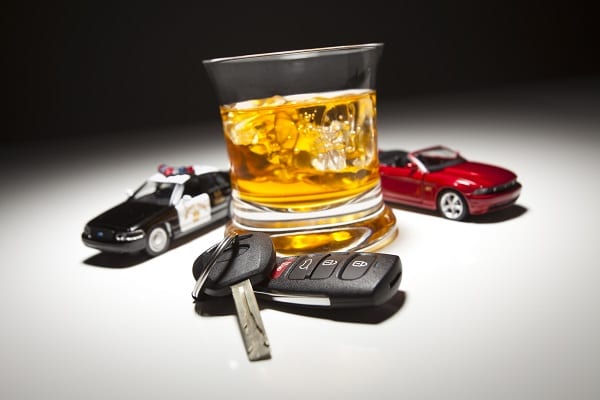
This question is an important one. Roughly 80 percent of DWI suspects provide breath or blood samples. And, in Minnesota, if the defendant’s BAC is above the legal limit, the defendant is guilty as a matter of law.
Briefly, it is usually a good idea to refuse to provide a chemical sample. Yes, you will face additional drivers’ license suspension penalties. And yes, Minnesota has a refusal-to-submit law. So, people who refuse face additional criminal charges independent of DWI. But your drivers’ license will also be suspended if you fail the test. And, a refusal-to-submit conviction usually does not have the same collateral consequences as a DWI conviction.
Nevertheless, if you provided a sample, what’s done is done. Fortunately, there are a number of ways a Brainerd, MN criminal defense lawyer can successfully challenge chemical test results, as outlined below.
Probable Cause for Breath Tests
Before officers administer Breathalyzer tests, they must have probable cause to demand a sample. That’s a higher evidentiary standard than reasonable suspicion, which is the standard that applies at traffic stops. So, officers cannot pull over motorists, smell alcohol on their breaths, and demand chemical samples. They must collect additional evidence. Normally, the field sobriety tests provide this evidence.
However, many defendants refuse to perform these tests, like walking a straight line. Additionally, especially during high-enforcement periods, many hurried offers skip the probable cause phase. In these cases, a Brainerd, MN criminal defense lawyer can argue the state does not have enough evidence to establish this critical element.
Brainerd, MN Criminal Defense Lawyers and Breathalyzer Flaws
Pretty much all DWI-alcohol prosecutions involve breath tests. These gadgets may also soon be available for marijuana “drugged driving” cases. So, we’ll spend a little more time on this point.
No device is 100 percent accurate 100 percent of the time. That’s especially true of a Breathalyzer. This device is essentially a 1920s contraption that could “test a tippler’s breath,” except it has additional bells and whistles. Those early devices were flawed, and modern Breathalyzers have many of these same problems.
- Mouth Alcohol: Technically, officers are supposed to closely monitor defendants before they provide breath samples. However, they almost never do so. So, there is no way to know if the defendant burped, vomited, or belched. If that happened, ethanol particles from the stomach gushed into the mouth. So, a BAC reading would be artificially high.
- Errant Count: Ethanol is one of many, many ethyl particles in a person’s breath. The Breathalyzer often registers all these particles as alcohol. So, when police techs brag about how many particles the gadget measures, a good Brainerd, MN criminal defense lawyer can turn this statistic against the state.
- Temperature: As a rule of thumb, the smaller the device is, the more sensitive it is to the environment. Drop a laptop and it might survive. Drop a smartphone and it’s probably toast. This same principle applies to Breathalyzers, especially regarding temperature extremes. A few degrees often affects the results significantly.
- Undigested Alcohol: This one is a bit complicated. Most alcohol goes from the mouth to the stomach to the liver to the blood. Because of this slower process, if the defendant has been drinking within the past hour, the breath alcohol count will be higher than the blood alcohol count.
Brainerd, MN criminal defense lawyers often partner with degreed chemists to drive home these flaws with the jury. These professionals carry more weight with jurors than police department technicians. Generally, Breathalyzer techs learned everything they know about these gadgets at brief, law enforcement-sponsored seminars.
Search Warrants for Blood Tests
These flaws normally do not apply in blood test cases. Blood samples are much more accurate than breath samples. However, the Supreme Court recently rules that officers must have search warrants to extract blood samples. Generally, officers do not bother to take this extra step.
Under the Fourth Amendment, search warrants must be based on affidavits which show probable cause. The probable cause portion was discussed above. An affidavit is a written and specific document supported by an oath or affirmation. A phone call to a judge is not a written document. And, a vague description of the arrest, like “we pulled over a guy for suspicion of DWI,” is not specific.
Blood Test Flaws
As mentioned, blood samples are usually accurate. However, the method that police technicians use to examine these samples is not always accurate. So, Brainerd, MN criminal defense lawyers routinely order re-tests. Frequently, professionals at independent labs uncover results that are markedly different from the ones police officers claimed they found.
Additionally, blood samples often have chain of custody issues. These samples must travel from the defendant’s body to a police lab to an evidence room to the courtroom. A gap in the chain of custody might not invalidate the evidence, but it does cast doubt on its authenticity.
Team Up with a Hard-Hitting Attorney
Chemical tests are not always accurate in DWI cases. For a free consultation with an experienced Brainerd, MN criminal defense lawyer, contact Carlson & Jones, P.A. Home and jail visits are available.

